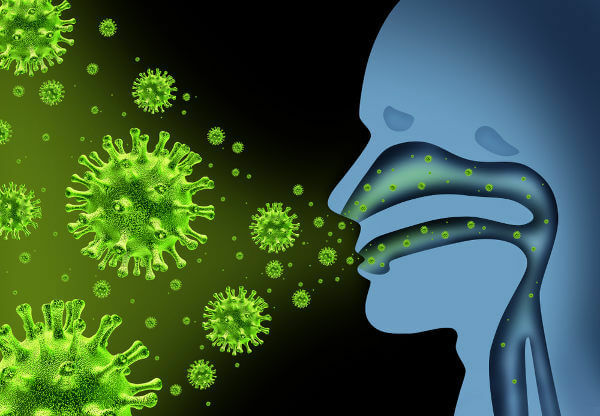Infection can be defined, according to the Ministry of Health, as "penetration and development or multiplication of an infectious agent in the organism of man or other animal." The infection can trigger some clinical manifestations, in which case it is called infectious disease.
Only a minority of people exposed to infectious agents develop infectious diseases. This is due to the fact that, most of the time, our bodies are able to stop the infection. Among the body's defenses against infections, we can mention the skin, which is a mechanical barrier; defense cells and the famous antibodies. Another important point to be highlighted is that, many times, men are able to transmit infectious agents from one individual to another, and man, therefore, is a source of infection.
Read too: Bacteria present in the human body
→ infectious agents
You infectious agents they are organisms capable of triggering infectious diseases or infections. These agents are mainly micro-organisms, however, they can also be other organisms, such as helminths (popularly called worms). Among the main infectious agents, we can mention:
virus, bacteria, fungi and protozoa.Infectious agents can enter the body through the skin, respiratory, circulatory and mucous membranes, for example. THE streaming it can also take place in different ways. directly or indirectly.

Infectious agents can be transmitted directly or indirectly.
THE direct transmission it is one that occurs from one organism to another, without the need for a vehicle for the infectious agent. Direct transmission can happen, for example, through direct physical contact, or through contact with another individual's secretion.
already the indirect transmission of these infectious agents occurs through vehicles of transmission. In this type of transmission, the agent can be transmitted through contaminated objects and materials or even through a vector.
Read too:Vector and etiological agent
→ Examples of Infectious Diseases
Infectious diseases are those triggered by infectious agents, that is, they are the result of an infection. The infectious agent, when entering the human organism, may not cause any manifestation, in which case a picture of a asymptomatic infection.
Other times, however, they can trigger clinical manifestations, which characterize an infectious disease. The period from infection to the onset of symptoms is called incubation period.

Infectious agents can cause infectious diseases.
Examples of infectious diseases are:
Mumps
Cholera
Dengue
Schistosomiasis
Yellow fever
The flu
leptospirosis
Malaria
Measles
Tetanus
Varicella
→ hospital infection
THE hospital infection is that which occurs after a patient's hospitalization and is manifested while that patient is in the hospital environment or after discharge, if it is possible to confirm the origin of the infection.
Hospital infections commonly occur due to microorganisms that generally would not cause disease in the host, however, because of the low resistance of these individuals, there is the development of infection. In most cases, it manifests as a complication in those patients who are very debilitated.

The simple act of washing hands can reduce the transmission of infectious agents in the hospital environment and beyond.
To avoid hospital infections, it is essential to have a clean environment with care that avoids contamination. Among the main and most basic measures to prevent hospital infections, we can highlight:
Properly wash your hands;
Use personal protective equipment;
Decontaminate objects and surfaces.
Read too: Importance of washing hands
→ Difference between infection and inflammation
It is common to see confusion when it comes to infection and inflammation. Although the terms are often used interchangeably, infection and inflammation involve different situations.
When we talk about infection, we are talking about the development or multiplication of an infectious agent in the body. already the inflammation it refers to the body's reaction to the action of a physical, chemical or biological agent in an attempt to prevent and repair damage caused by these agents.
By Ma. Vanessa Sardinha dos Santos
Source: Brazil School - https://brasilescola.uol.com.br/o-que-e/biologia/o-que-e-infeccao.htm

